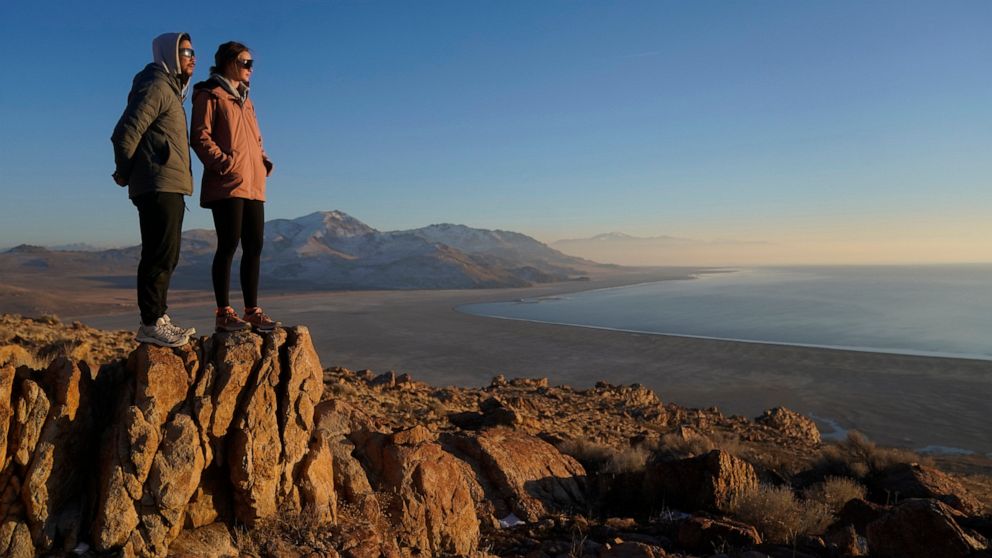
Race is on to save the Great Salt Lake: Will it be enough?
ABC News
The largest natural lake west of the Mississippi is shrinking past its lowest levels in recorded history, raising fears about toxic dust, ecological collapse and economic consequences
SALT LAKE CITY -- The largest natural lake west of the Mississippi is shrinking past its lowest levels in recorded history, raising fears about toxic dust, ecological collapse and economic consequences. But the Great Salt Lake may have some new allies: conservative Republican lawmakers.
The new burst of energy from the GOP-dominated state government comes after lake levels recently hit a low point during a regional megadrought worsened by climate change. Water has been diverted away from the lake for years, though, to supply homes and crops in Utah. The nation’s fastest-growing state is also one of the driest, with some of the highest domestic water use.
This year could see big investment in the lake that's long been an afterthought, with Gov. Spencer Cox proposing spending $46 million and the powerful House speaker throwing his weight behind the issue. But some worry that the ideas advancing so far at the state Legislature don’t go far enough to halt the slow-motion ecological disaster.
One proposal would tackle water use in homes and businesses, by measuring outdoor water that's considered some of the country's cheapest. Another would pay farmers for sharing their water downstream, and a third would direct money from mineral-extraction royalties to benefit the lake.
